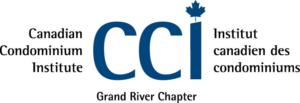As the winter frost begins to thaw and signs of spring emerge, condominium corporations must gear up for the seasonal transition to ensure the smooth functioning and well-being of their properties. Spring brings its own set of challenges and opportunities, making proactive planning essential for maintaining the integrity and attractiveness of the condominium complex. Here’s a comprehensive checklist outlining the crucial planning steps that condominium corporations should undertake in preparation for spring.
Landscaping Assessment and Maintenance:
Spring marks the revival of landscaping activities. Conduct a thorough assessment of the property’s green spaces, including lawns, gardens, and shrubbery. Identify any damage caused by winter weather, such as frost heave or fallen branches, and prioritize cleanup and repair tasks. Schedule lawn care services, pruning sessions, and mulching to rejuvenate the outdoor areas and enhance curb appeal.
Irrigation System Inspection:
Verify the functionality of the irrigation system to ensure it operates efficiently during the upcoming warmer months. Inspect for leaks, clogs, or damaged components that may compromise water distribution. Adjust watering schedules according to seasonal needs, considering factors like increased rainfall and rising temperatures. Implement any necessary repairs or upgrades to optimize water conservation and maintain healthy vegetation.
Exterior Building Maintenance:
Spring is an ideal time to address any exterior maintenance issues accumulated over the winter. Conduct a detailed inspection of the building facade, roof, windows, and doors for signs of wear, damage, or deterioration. Address any cracks, gaps, or sealant failures to prevent moisture intrusion and maintain structural integrity. Schedule professional cleaning services to remove dirt, grime, and debris, enhancing the aesthetic appeal of the property.
HVAC System Tune-Up:
Prepare the heating, ventilation, and air conditioning (HVAC) systems for the transition from heating to cooling mode. Schedule routine maintenance checks, filter replacements, and duct cleaning to optimize system efficiency and indoor air quality. Verify thermostat settings and adjust temperature controls accordingly to ensure occupant comfort while minimizing energy consumption. Consider investing in programmable thermostats or smart HVAC technologies for greater control and energy savings.
Pest Control Measures:
With the arrival of warmer weather, pests such as insects, rodents, and birds become more active, posing potential threats to the condominium complex. Implement preventive pest control measures, such as sealing entry points, installing screens, and conducting regular inspections. Consider partnering with professional pest management services to develop a comprehensive integrated pest management (IPM) plan tailored to the property’s specific needs and environmental considerations.
Common Area Cleaning and Sanitization:
Prioritize the cleanliness and sanitation of common areas, including lobbies, hallways, elevators, and recreational facilities. Develop a spring-cleaning schedule to address dust accumulation, disinfect high-touch surfaces, and remove clutter or debris. Promote resident awareness and participation in maintaining cleanliness standards through communication channels and community initiatives. Consider incorporating environmentally friendly cleaning products and practices to minimize ecological impact.
Emergency Preparedness Review:
Reassess the condominium corporation’s emergency preparedness protocols and procedures in anticipation of spring-related hazards, such as storms, floods, or power outages. Update emergency contact information, evacuation routes, and disaster response plans as necessary. Conduct training sessions or drills to familiarize residents and staff with emergency protocols and promote a culture of safety and preparedness within the community.
Budget Planning and Allocation:
Review the condominium corporation’s budgetary allocations for spring maintenance and improvement projects. Prioritize essential tasks based on urgency, compliance requirements, and community priorities. Seek competitive bids from qualified contractors or service providers for larger-scale projects to ensure cost-effectiveness and quality assurance. Allocate sufficient resources for contingency funds to address unforeseen expenses or emergency repairs.
Community Engagement and Communication:
Foster open communication and collaboration among residents, board members, property managers, and service providers throughout the spring preparation process. Keep stakeholders informed of planned activities, timelines, and expectations through regular updates, newsletters, and community meetings. Encourage feedback, suggestions, and participation in decision-making processes to promote a sense of ownership and investment in the condominium community’s well-being.
Environmental Sustainability Initiatives:
Embrace environmentally sustainable practices and initiatives to reduce the ecological footprint of the condominium complex. Explore opportunities for energy efficiency upgrades, water conservation measures, waste reduction strategies, and green landscaping techniques. Educate residents on sustainable living habits and promote eco-friendly behaviours through awareness campaigns, recycling programs, and community initiatives.
Garage Power Wash:
Start the spring season off with a clean slate by scheduling a thorough power wash of the parking garage. Over the winter months, salt, sand, and debris may have accumulated, leaving behind unsightly stains and grime. A power wash not only enhances the appearance of the garage but also helps to prolong the lifespan of the surface by removing corrosive materials.
Catch Basin Cleaning:
Prevent potential flooding and drainage issues by cleaning out catch basins before the spring rains arrive. Remove any debris, leaves, or sediment that may have accumulated over the winter, hindering proper water flow. Regular catch basin maintenance helps prevent water pooling and minimizes the risk of property damage during heavy rainfall.
Windows Washing:
Restore clarity and brightness to the condominium complex by scheduling a professional window-washing service. Clean windows not only improve the overall appearance of the building but also allow more natural light to enter indoor spaces, creating a welcoming environment for residents and visitors.
Outdoor Pool Startup:
Get ready to make a splash by initiating the startup process for the outdoor pool. Conduct a comprehensive inspection of the pool equipment, including pumps, filters, and heaters, to ensure they are in proper working condition. Balance water chemistry, remove debris, and install safety equipment such as lifeguard stands and signage as necessary.
Garbage Bins and Chute Cleaning:
Maintain cleanliness and hygiene within the condominium complex by cleaning and sanitizing garbage bins and chutes. Remove any accumulated waste, debris, or foul odours to prevent pest infestations and maintain a pleasant living environment for residents. Implement a regular cleaning schedule to ensure ongoing cleanliness throughout the year.
Asphalt Repair:
Address any potholes, cracks, or surface damage on the asphalt driveways, pathways, and parking lots. Schedule asphalt repair and resurfacing services to restore the integrity and safety of the surfaces. Prompt repairs help prevent further deterioration and minimize liabilities associated with trip hazards and vehicle damage.
Parking Lines Repainting:
Refresh the parking lines in the garage and outdoor parking areas with a fresh coat of paint. Clear and visible parking lines help optimize parking space usage, improve traffic flow, and enhance safety within the condominium complex. Ensure that the repainting is done in compliance with local regulations and accessibility standards.
Roof and Balcony Inspection:
Protect the structural integrity of the condominium complex by conducting a thorough inspection of the roof and balconies. Look for signs of damage, leaks, or deterioration caused by winter weather conditions. Repair any loose shingles, damaged flashing, or deteriorated seals to prevent water infiltration and maintain a watertight envelope.
In conclusion, proactive planning and timely maintenance are essential for preparing a condominium corporation for the arrival of spring. By following this comprehensive checklist and taking proactive planning steps, condominium corporations can effectively prepare for the arrival of spring, ensuring the safety, functionality, and attractiveness of their properties for residents and visitors alike. Spring presents a prime opportunity for renewal, rejuvenation, and community engagement, setting the stage for a vibrant and thriving condominium community throughout the season and beyond.

 with the
with the

















 Annie Bailey
Annie Bailey









